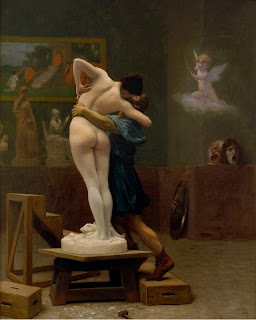TED believes facebook and other modes of internet people connecting will change the form and nature of human interaction, and I agree, the changes are underway. Will it effect human nature or is it just a mechanism for revealing it in new ways? – Ilene
The Relief of Distance
Courtesy of The Epicurean Dealmaker

After all, Facebook, like Zuckerberg, is a paradox: a Web site that celebrates the aura of intimacy while providing the relief of distance, substituting bodiless sharing and the thrills of self-created celebrityhood for close encounters of the first kind. …
[Zuckerberg]’s a revolutionary because he broods on his personal grievances and, as insensitive as he is, reaches the aggrieved element in everyone, the human desire for response.
— David Denby, "Influencing People"
Part of the power and attraction of social media, in my opinion, is that it encourages and enables the creation of acquaintance, friendship, and even intimacy among individuals who would otherwise never be able to create or even desire such relationships in the real world. Culture, geography, distance, and existing socioeconomic ties are not insurmountable or even apparent obstacles to people commencing interaction and communication over the internet. This broadens the scope for both connection and misunderstanding to a far greater degree than has been possible to date in our local, non-virtual, geography- and time-constrained world. The potential degrees of freedom of human interaction have materially increased. While this has opened intoxicating vistas of personal possibility for millions, you can also imagine it is not always a good thing.
The other significant change embedded in these new interactions is that people can cultivate relationships over virtual social networks for months and even years without ever meeting in the flesh. Stable, long-lasting, and—it is not irresponsible to imagine it—even durable relationships of the deepest kind can be established and maintained between characters or personae that individuals adopt and present to each other. Is this wise? Is it responsible? Is it fair?
Does it matter?
Probably not, for we have already shipped ourselves out to a brave new world. An entire generation is constructing online identities—smarter, wittier, braver, and prettier than we are in the real world—and sending them out to interact and form relationships with similarly artificial simulacra. We are no longer Pygmalion in his studio, sculpting an image of female perfection according to our own desires and imaginings, and then falling in love with our own pliant and accommodating creation.
Instead, we are sculpting ourselves into our own Galateas, in form and image how we imagine others would desire us to be, and then posting our idealized version of ourself onto the global bulletin board of friendship and desire. Where will this go? How will it end?
I am an old man, a throwback to a generation which found standalone PCs with 256K of memory revolutionary, so I am not qualified to say. But I must believe it will have an effect on the form and nature of human interaction going forward.
And I also believe that one day, some restless prodigy of the Facebook generation will take all these changes and rewrite Romeo and Juliet for the brave, new, networked world of her peers. I predict it will be both beautiful and heartbreaking.


